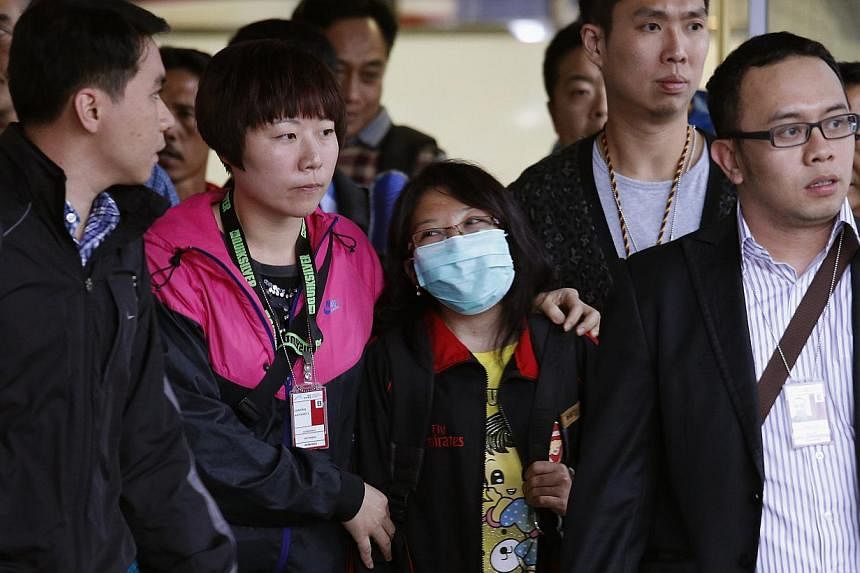Stories of domestic worker Erwiana Sulistyaningsih made headlines when she spoke out against her employer's alleged abuse while working in Hong Kong. Gruesome cuts and burns on her body reportedly left her unable to walk when she returned to Jakarta.
Details of her case reveal more than the beating and physical abuse she allegedly suffered in the eight months she was in Hong Kong. She was not able to sleep or eat adequately, had to work as long as 20 hours a day and was not allowed any days off.
However, the Indonesian public, who were indignant at the sight of Ms Erwiana, could be ignoring an even more marginalised group of domestic workers - those within their own borders. Domestic workers in Indonesia face the same level of contempt and abuse as that experienced by their counterparts who go overseas, if not worse.
A month after Ms Erwiana's return to Indonesia, Ms Yuliana Leiwer fled the home of her employer Mutiara Situmorang in Bogor, West Java.
The report attracted attention because the employer was the wife of a retired police general, and because 15 other domestic workers in the household reported physical abuse and forced servitude. Ms Yuliana and the others had not been paid in months. According to the Bogor Legal Aid Institute (LBH Bogor), seven of the 16 workers were 17.
Ms Yuliana's story might be an extreme example, but domestic workers in Indonesia often suffer abusive, degrading and disrespectful treatment by their employers.
One problem is the lack of legal mechanisms to regulate domestic work, which leaves domestic workers in legal limbo. The current labour laws exclude domestic workers, and politicians have been dragging their feet for years in finalising the draft of the domestic workers law. This means employers are free to set the rules.
According to the National Labour Force Survey, Indonesia had 2.6 million domestic workers in 2012, 75 per cent of whom were female. Add in the three million women migrant workers abroad, and by 2012, there were at least five million Indonesian women and girls employed as domestic workers.
What links the stories of Ms Erwiana and Ms Yuliana, and the millions of other domestic workers in Indonesia, is the long-overdue acknowledgment of domestic work as proper employment and their rights as workers.
Such recognition would be important because better labour protection for migrant domestic workers in destination countries translates into more remittances and better development prospects for countries of origin, as we argue in our report for UN Women. This is true of Indonesia, where domestic workers make up almost 50 per cent of all migrant workers, but are paid substantially less than their male counterparts.
Moreover, local domestic workers in Indonesia come primarily from poor families in rural areas, and their income is usually vital for their families' survival. Better working conditions for them would thus improve the lives of the poor.
June 16 was International Domestic Workers' Day, which marks the adoption of the International Labour Organisation's (ILO) Convention No. 189 on Decent Work for Domestic Workers.
The convention represents a landmark treaty that has set standards for the treatment of domestic workers, finally giving a largely invisible workforce the same level of protection that formal workers have benefited from. It affirms that domestic workers are not "helping hands", but workers who should be able to work under conditions of freedom, equity, security and human dignity.
At the time of its adoption, President Susilo Bambang Yudhoyono showed his support for the need to protect all domestic workers by stating at the ILO Conference in Geneva that "those domestic workers who work within their own countries must also be given the same protection".
He stated that voting in favour of adopting the convention would help Indonesia "formulate effective national legislation and regulations". However, three years have passed since he gave his explicit support for the convention, and four years since the deliberation of the draft domestic workers law began.
In the meantime, 14 countries have ratified Convention No. 189. Yet, Indonesian domestic workers are still waiting for their rights to be respected and their contribution to society to be recognised.
The writers are from the University of Sydney and are members of the Sydney Southeast Asia Centre. They wrote Contribution Of Migrant Domestic Workers To Sustainable Development, published as a policy paper for the Global Forum on Migration and Development by UN Women.
THE JAKARTA POST/ASIA NEWS NETWORK

